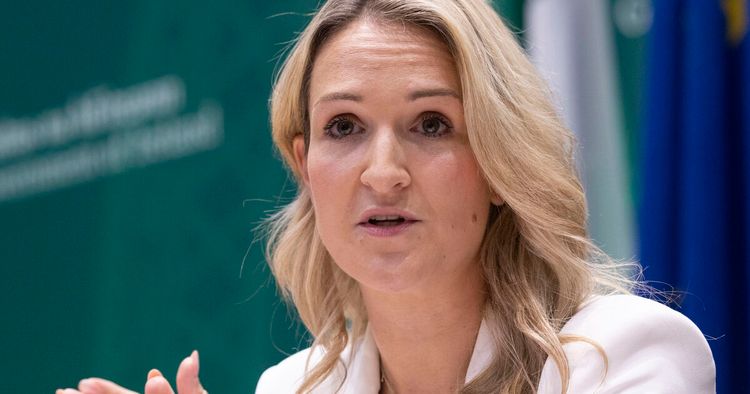Ireland and UAE agree extradition treaty

The Government have approved the signing of an extradition treaty with the United Arab Emirates (UAE), with expectations that senior members of the Kinahan cartel could be returned to the State to face trial.
Justice Minister Helen McEntee received approval for the signing at an incorporeal Cabinet meeting today.
It is understood that Ms McEntee will travel to Abu Dhabi next week to sign the treaty, which includes extradition and mutual legal assistance clauses, alongside her UAE counterpart.
It comes just days after one of the Kinahan cartel lieutenants, Sean McGovern, was arrested in the UAE in relation to the Hutch-Kinahan feud murder and directing organised crime.
McGovern is seen as the second in ranking to cartel leader Daniel Kinahan, who took him to Dubai.
Both men are based in Dubai, alongside Daniel’s brother Christopher Junior and the cartel’s founder Christy Kinahan.
Ms McEntee will seek Dáil approval for the treaties to allow them to enter into force once signed.
In a statement, the Justice Minister said that the treaties are a result of “extensive engagement” with her Emirati counterpart Abdullah Bin Sultan Bin Awad Al Nuaimi “This process is about putting those at the top of organised crime behind bars and holding them responsible for their actions,” Ms McEntee said.
“Any person involved in organised crime should know there is no hiding place; you will face justice.
“Many organised crime gangs think they can evade justice by crossing borders; they cannot. There can be no hiding place anywhere in the world for criminals.” The Government have said that the treaties are in line with existing legislation on extradition and mutual legal assistance to ensure safeguards for protection of human rights.
Tánaiste Micheál Martin said there will no longer be a safe haven for organised crime once a new extradition treaty is in place.
“It is an important agreement and government has to approve it first. And that's underway," the Foreign Affairs Minister said.
“It's something that a lot of work has gone down to from both the Department of Foreign Affairs and the Department of Justice."
Mr Martin would not comment on individuals who the treaty may impact.
But he said that for “anybody who may be guilty of criminal activity in Ireland or anywhere, into the future, the UAE will not be a safe haven, irrespective of who the people are.”
Mr Martin said that the Department of Foreign Affairs takes the lead in developing and working on these treaties, but the Department of Justice is the key department working on them from a legality perspective.
Last week, Garda Commissioner Drew Harris appealed to Kinahan cartel members to “consider their own future” and turn themselves in.
"In April 2022 US authorities announced their sanctions (against named members of the Kinahan crime gang) and a reward. I would speak, then unusually perhaps, to other members of the Kinahan crime gang.
“They should see what is happening here and they should remember that there is $15m with US federal law enforcement and the US Federal witness protection scheme open, and they should consider that.
“They should consider their own future, given the progress we are making into the Kinahan organised crime gang, collectively, not just us, but other partners, be it the National Crime Agency, Europol and our US federal law enforcement counterparts," Mr Harris said.
Work began on establishing an extradition treaty last year, with Ms McEntee engaging with the Emirati Justice Minister Abdullah Bin Sultan Bin Awad Al Nuaimi on the matter.
Last year, the Garda Commissioner travelled to the UAE to meet with government officials as well as the Dubai chief of police to engage on returning senior members of the Kinahan cartel to Ireland.











































